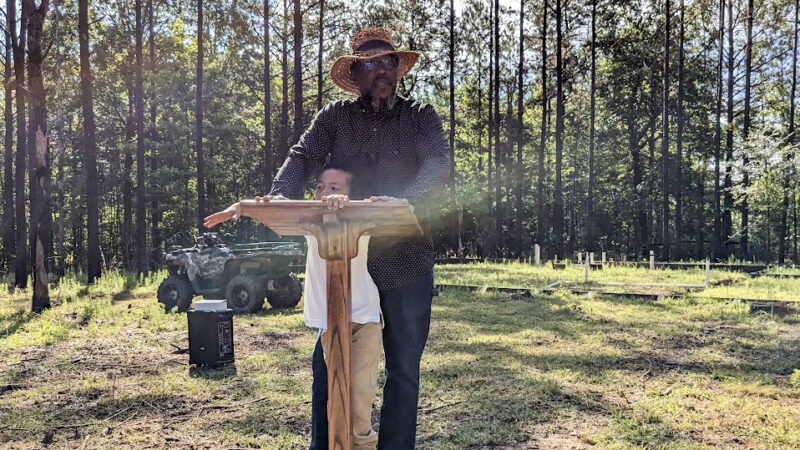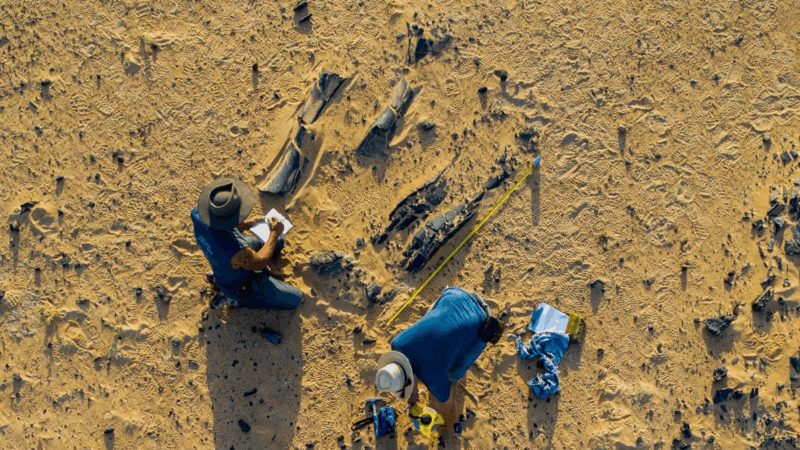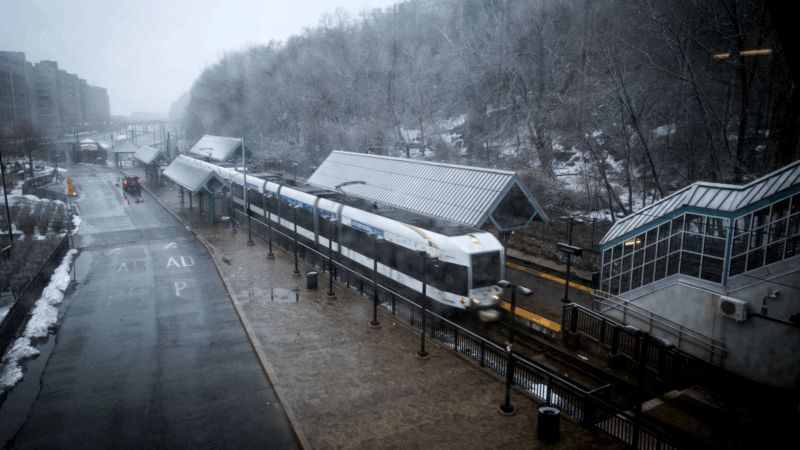Elder Black farmers in Mississippi seek a new generation to continue their legacy
Kevin Springs stands in front of a podium with his grandson on June 19, 2023, at TKO Farming in McCool, Mississippi. The farm is having a groundbreaking for its training center to pass on sustainable practices from older Black farmers to young Black farmers.
It’s a warm day on Juneteenth in McCool, Mississippi, and Teresa Ervin-Springs needs to take a moment before she addresses the crowd that sits in front of her.
In some ways, it feels more like a family reunion for Ervin-Springs and her husband, Kevin Springs, than a groundbreaking ceremony. Their relatives, friends and supporters have all gathered at their farm — Teresa and Kevin’s Oasis (TKO) Farming — to celebrate the early stages of the family’s latest venture, Ancestral Be-Kin’s Southern Agrarian Training Center.
The center, which is still in the fundraising stage, will serve as a physical hub for the work the family is already doing — passing on sustainable practices from older Black farmers to young Black farmers — hopefully for generations to come.
“A lot of times I apologize to young people because I think we’re leaving them a wounded world,” Ervin-Springs said. “That’s why TKO Farming started, and that’s why the programming started and we have Ancestral Be-Kin today.”
Also in attendance are the Springs’ older mentors, who passed down their knowledge of ancestral farming to help get TKO Farming started. In a way, they represent the ancestors who were on the land before them.
“They teach us how it used to be here, how people used to live in community. And that’s what we’re trying to build,” Ervin-Springs said.
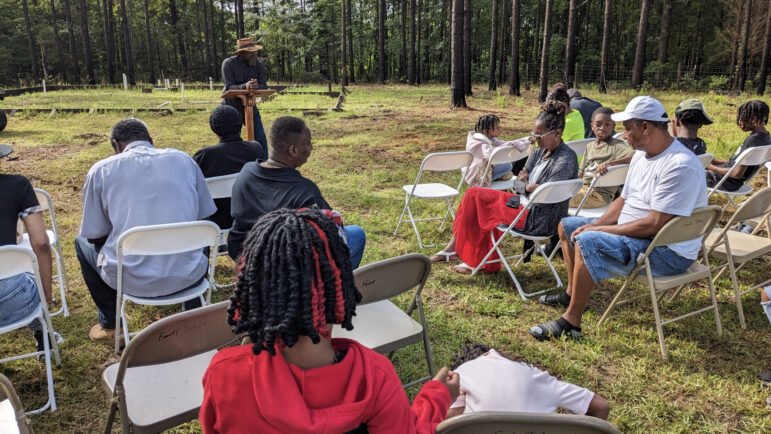
Throughout the U.S., Black farmers make up a very small — and aging — portion of the farming population. This issue is felt harder in Mississippi where, as older farmers are dying out, most new farmers planting their roots are the first to do so in their families.
These stats weigh on the Springs’ mind. It’s why they want to pass on the ancestral farming practices they have been taught to this next generation in attendance at the ceremony — the beginning farmers they’ve mentored, the college students they’ve hosted on their land and even their grandchildren.
“That’s why we keep going,” Kevin Springs said.
Starting Ancestral Be-Kin
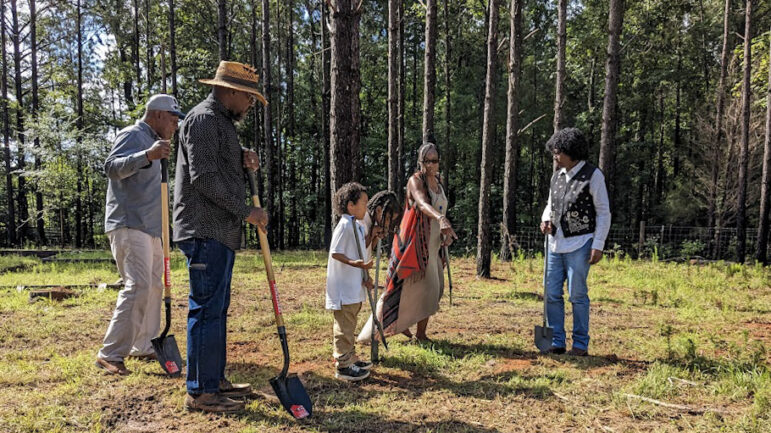
The Springs were new farmers when they started several years ago, but they got up to speed thanks to guidance from organizations like the Winston County Self-Help Cooperative. They joined the Southeastern African American Farmers’ Organic Network (SAAFON) to learn more about ecologically-based practices and the legacy of Black farming.
Now, they’re taking the information they were taught to help mentor other beginning producers by teaching them practical skills, how to navigate federal agriculture programs and even allowing some to work alongside them.
“It’s been wonderful seeing those relationships develop, not only with my husband and the younger men, but the younger men with the elders, and my husband with the elders,” Ervin-Springs said.
The training center will be a place to continue connecting the older and younger generations of Black farmers.
Ervin-Springs said her own experience with starting her farm helped her realize the importance of passing down the ancestral knowledge of sustainable farming. The Springs are in their 50s, and only started farming after Kevin’s mother passed her land on to the couple.
The elders that they met through the Winston County Self-Help Cooperative were like living, farming encyclopedias. They were packed with so much knowledge not commonly found in a textbook or guide that, if passed on, could help the next generation figure out how to keep growing as the climate changes. The Springs’ took their advice and combined it with their efforts to farm regeneratively, which is a type of farming that focuses on improving the soil.
But Ervin-Springs quickly noticed that she and her husband were among the youngest in that group.
“We thought to ourselves, if we’re the younger ones, we’re going to be in trouble if we don’t harness or get this knowledge in so we can pass it on,” she said.
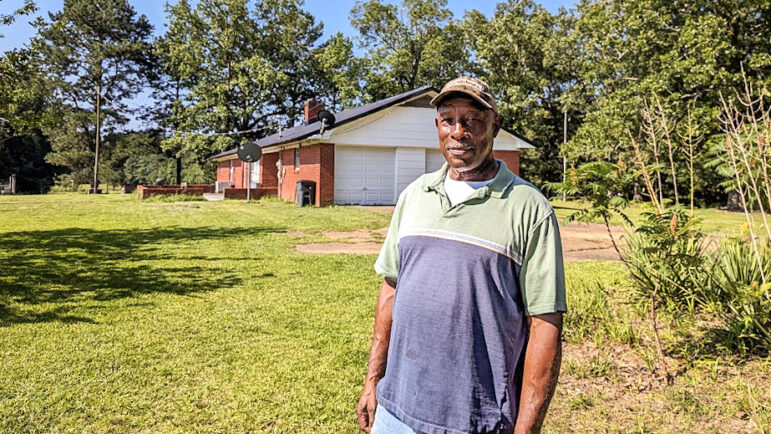
Alonzo Miller, a fourth-generation farmer in Louisville, Mississippi, was one of their biggest mentors. He was hands-on in teaching them the basics, like how to use a tractor, to more vital information, like how to cut down trees without harming yourself.
Miller is also passionate about nurturing the next generation of farmers. His children aren’t following in his footsteps, so helping younger producers is his way of keeping his family’s farming legacy alive.
“Those kids that do want to learn, they still are part of your family and you’re passing things on,” he said.
Miller also wants to help in more tangible ways. He said a big problem for older farmers is finding ways to make sure their land continues being farmed when they retire or move on, rather than being converted for industrial use. He’s downscaling his farm, and he wants to sell the rest of it to a young farmer so they have land that is ready for them to start growing on.
“A lot of companies buy up land that belongs to individuals,” Miller said. “When the land is bought up by them, there’s less for people who need land.”
Bridging the gap
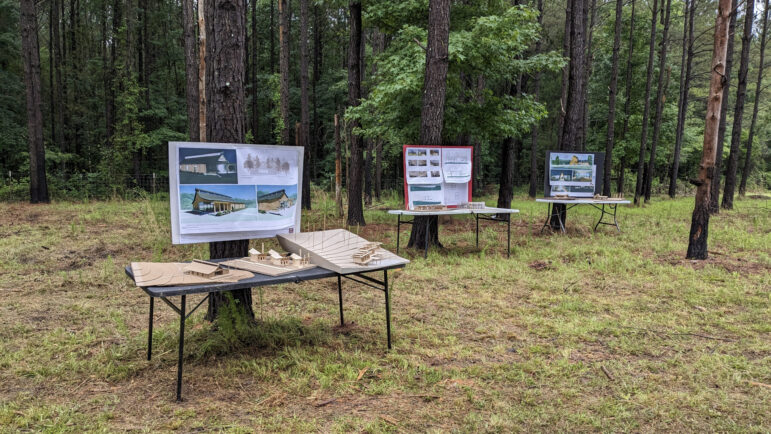
The 2022 National Young Farmers Survey — released by the National Young Farmers Coalition — shows that land access is part of a wider issue.
According to the survey, the vast majority of young farmers are first-generation producers. That means they don’t have older family members to guide them and are having to start from scratch, Carolina Mueller, the coalition manager, said.
“These are mostly people like me who didn’t grow up in a farming family, don’t have access to land necessarily,” Mueller said.
Young producers, especially Black farmers, are having a hard time finding affordable land. In the survey, 75% of Black farmers said they needed more land access, compared to 54% of all respondents.
Meanwhile, a lot of land is going to be available as older farmers in the U.S. retire, Mueller said. More than 40% of US farmland is expected to change ownership over the next two decades, according to data from the 2014 Tenure, Ownership, and Transition of Agricultural Land Survey and the 2012 Census of Agriculture.
The Young Farmers Coalition is focusing on the 2023 Farm Bill as a way to bridge that gap and implement policies that make getting access to land and assets easier. Part of that is making changes so that federal funding, such as United States Department of Agriculture programs, is available to more people.
“They could make the difference between a successful farm business and one that lasts seven years, which is the average length of time that our survey found that folks are farming before they step away from it,” Mueller said.
Despite the challenges, Mueller said many farmers that responded to the survey who are young and Black, Indigenous, or a person of color (BIPOC) see farming as a higher calling. Environmental stewardship was an overwhelming motivation. Young and BIPOC farmers were farming to respond to the climate crisis while also navigating being impacted by it.
Others wanted to help their communities or, for young Black farmers, reclaim agriculture back from its association with enslavement. Mueller said it’s been especially exciting to see agriculture investment in the Southeast.
“There’s just such a beautiful, deep, rich, complicated history of farming and of organizing, especially in Black communities,” she said. “I think lifting that up with a new generation of farmers is going to be really important.”
A look at the future
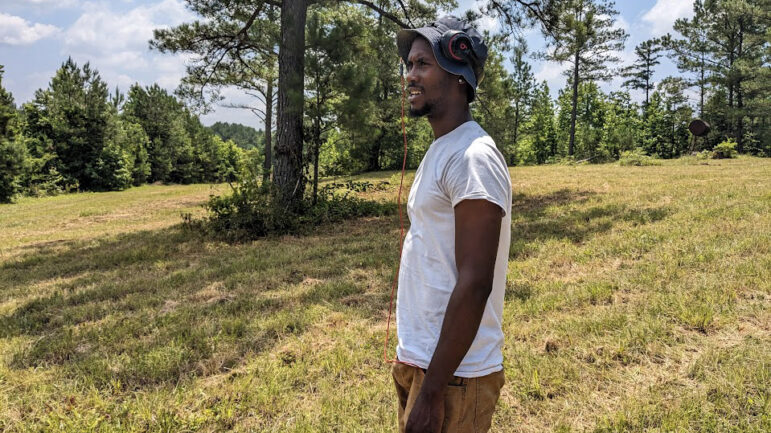
Markel Thompson is one of those new farmers who is reconnecting with agriculture. He’s 28 years old and oversees his family’s farm in McCool. He didn’t grow up farming, but his grandfather was born here.
“He left, though, and moved to Chicago, had my mother and I was just raised in the inner city,” Thompson said.
Thompson’s interest in farming sparked years ago when he began a plant-based diet due to wanting more control over what he ate. First, he tried growing things in pots in his apartment. Then, he tried out a community garden, but it wasn’t enough. Eventually, he felt like something was telling him to go to the family farm.
“It was just like a faint whisper,” he said. “Like, ‘Hey, it’s time to go home.’ And my grandfather ended up calling me in the hospital and said, ‘Markel, I need you to come home. I’m sick.’”
Since coming to McCool, Thompson has learned from people like the Springs family. Last year, he took a position as their farmhand. He watched them every day to learn how the farm worked and figure out tasks like creating a planting schedule. There were also older farmers, like Miller, who gave him advice.
Being around his elders has changed how he views himself.
“Me being young, it re-energizes the elders because they’re like, ‘Oh, young man! We have somebody to pass down this knowledge to,’” he said.
Caring for his grandfather made Thompson want to grow organic food and help his elders. To do this, he’s focusing on making his farm regenerative, just like the Springs, which means taking the time to build up nutrients in the soil and growing diverse crops.
For now, he’s preparing his first pasture for planting, and he’s excited about the prospects. Thompson oversees more than 100 acres that belong to his entire family. Often, he’ll spend hours just exploring. It’s partly fun but also practical.
“I was back there searching for a well that’s supposed to be just open somewhere,” Thompson said. “I need to find that before I fall in there. That would be terrible.”
He also just bought the building that will be his future home, with plans to build it at the top of the hill, looking out over his new farm. It will allow him to scout a location for his own personal garden — the one he couldn’t make work in his city apartment years ago. He thinks he’ll start with watermelon.
“What I was searching for in the city, I found it,” he said. “It’s the peace. It’s the ability to create. I’m finding my purpose and my passion every day out here.”
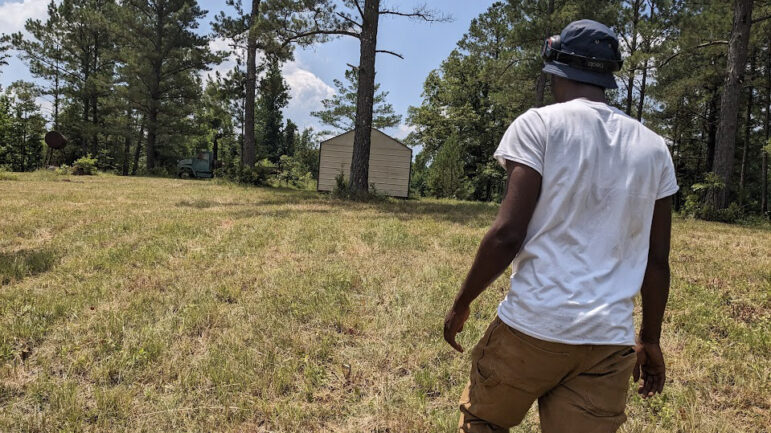
This story was produced by the Gulf States Newsroom, a collaboration between Mississippi Public Broadcasting, WBHM in Alabama, WWNO and WRKF in Louisiana and NPR.
Mexico fears more violence after army kills leader of powerful Jalisco cartel
School was canceled in several Mexican states and local and foreign governments alike warned their citizens to stay inside following the army's killing of the leader of the Jalisco New Generation Cartel, Nemesio Rubén Oseguera Cervantes, "El Mencho," and the violence it spurred
Newly discovered dinosaur species was a fish-eater with a huge horn
The semi-aquatic dinosaur, Spinosaurus mirabilis, was discovered by an international team of scientists working in Niger.
Reporters’ notebook: The Olympics closing ceremony is way more fun than you’d think
Olympics opening ceremonies tend to get more love than their closing counterparts. But a pair of NPR reporters who watched both in Italy left with a newfound appreciation for the latter.
Northeast readies for a major winter storm, with blizzard warnings in effect
New Jersey through Massachusetts could see 2 feet of snow. New York City's mayor said the city had not "seen a storm like this in a decade."
Mexican army kills leader of Jalisco New Generation Cartel, official says
The Mexican army killed the leader of the powerful Jalisco New Generation Cartel, Nemesio Rubén Oseguera Cervantes, "El Mencho," in an operation Sunday, a federal official said.
Ukraine’s combat amputees cling to hope as a weapon of war
Along with a growing number of war-wounded amputees, Mykhailo Varvarych and Iryna Botvynska are navigating an altered destiny after Varvarych lost both his legs during the Russian invasion.

